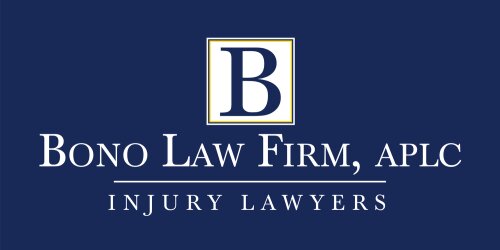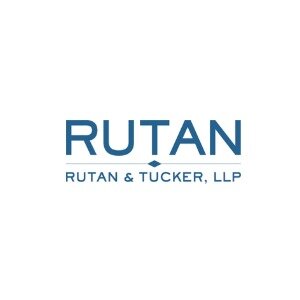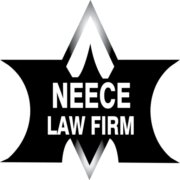Best Land Use & Zoning Lawyers in United States
Share your needs with us, get contacted by law firms.
Free. Takes 2 min.
Free Guide to Hiring a Real Estate Lawyer
Or refine your search by selecting a city:
List of the best lawyers in United States
About Land Use & Zoning Law in United States
Land Use and Zoning law in the United States is a framework governing how land can be used and what structures can be built. This body of law is intended to ensure that land is used in an organized manner that serves the public interest. Zoning laws typically divide land into areas like residential, commercial, industrial, and agricultural zones. These regulations are put in place at local, state, and federal levels, with local governments often having the most say in zoning decisions. Zoning laws also enforce building codes and standards to ensure safety and environmental stewardship.
Why You May Need a Lawyer
Land use and zoning matters can be complex, involving intricate regulations and the interests of various stakeholders. Here are some common situations where legal advice may be necessary:
- You're planning to develop a new property or modify existing structures and need approval from local zoning boards.
- You're facing opposition to a land use change or development project.
- You want to contest a zoning change or appeal a decision by a zoning board.
- Your property is affected by imminent domain or you need to negotiate compensation.
- You need clarification on property boundaries and easements.
- You face potential fines or legal issues with zoning violations.
Local Laws Overview
Local laws and regulations are critical in understanding what can be done with a piece of land. Each municipality generally has its own zoning codes and land use regulations. Key aspects often include:
- **Zoning Districts** - Designations such as residential, commercial, industrial, and mixed-use zones.
- **Permitted Uses** - Activities and structures permissible within a specific zone.
- **Lot Sizes and Setbacks** - Regulations on the minimum size of a lot and distance that structures must be set back from boundaries.
- **Building Heights and Densities** - Restrictions dictating the maximum height of structures and density of developments.
- **Historic Preservation** - Guidelines for protecting historical sites and buildings during development.
Frequently Asked Questions
What are zoning laws?
Zoning laws are regulations governing how land within certain jurisdictions can be used. They designate specific areas for residential, commercial, industrial, and agricultural uses, among others.
How can I find out the zoning for a property?
Contact your local planning or zoning department, or check their website, where zoning maps and codes are typically available to the public.
What is a zoning variance, and how do I get one?
A zoning variance is a exception to the zoning ordinance. To obtain one, you usually need to apply and show that strict enforcement of the zoning law would cause you unnecessary hardship.
Can zoning laws change?
Yes, zoning laws can change through a process involving public hearings and approvals by local government bodies. Changes can occur due to urban development plans or shifts in community needs.
What's the difference between zoning and planning?
Zoning involves the actual regulations and laws that govern land use, while planning is a process that outlines goals and strategies for land development and future growth.
Are there any exceptions to zoning laws?
Yes, exceptions can include variances, conditional uses, and non-conforming uses granted under specific circumstances by a zoning board.
How do I contest a zoning decision?
You can appeal the decision to the zoning board of appeals or file a lawsuit in court. It’s advisable to consult with a land use attorney for guidance.
What is eminent domain?
Eminent domain is the government’s power to take private property for public use, with compensation provided to the property owner.
Can I build a second residential unit on my property?
This depends on local zoning regulations. Some areas allow for accessory dwelling units (ADUs), while others may have restrictions.
What should I do if I receive a zoning violation notice?
Contact the local zoning office to understand the violation and context. Correct the issue if possible, or consider seeking legal advice if the notice is contested.
Additional Resources
Consider consulting the following resources for more information and assistance:
- The American Planning Association (APA) - Provides professionals and the public with information and resources related to urban planning and zoning.
- The U.S. Department of Housing and Urban Development (HUD) - Offers guidance on land use policies and resources for development projects.
- Local city or county planning or zoning offices - They hold the most relevant and up-to-date information related to zoning in your area.
Next Steps
If you need legal assistance in land use and zoning matters, here are the steps you can take:
- Start by gathering all relevant documents such as zoning maps, property deeds, and any notices received.
- Contact your local zoning or planning office to understand more about your issue and any available remedies.
- Seek legal consultations from attorneys specializing in land use and zoning to assess your case and receive expert advice.
- Consider joining local citizens groups or meetings focused on land use and community planning to stay informed about developments in your area.
- Determine if a zoning amendment, variance, or appeal is necessary and begin the process with the help of legal counsel.
Lawzana helps you find the best lawyers and law firms in United States through a curated and pre-screened list of qualified legal professionals. Our platform offers rankings and detailed profiles of attorneys and law firms, allowing you to compare based on practice areas, including Land Use & Zoning, experience, and client feedback.
Each profile includes a description of the firm's areas of practice, client reviews, team members and partners, year of establishment, spoken languages, office locations, contact information, social media presence, and any published articles or resources. Most firms on our platform speak English and are experienced in both local and international legal matters.
Get a quote from top-rated law firms in United States — quickly, securely, and without unnecessary hassle.
Disclaimer:
The information provided on this page is for general informational purposes only and does not constitute legal advice. While we strive to ensure the accuracy and relevance of the content, legal information may change over time, and interpretations of the law can vary. You should always consult with a qualified legal professional for advice specific to your situation.
We disclaim all liability for actions taken or not taken based on the content of this page. If you believe any information is incorrect or outdated, please contact us, and we will review and update it where appropriate.
Browse land use & zoning law firms by state in United States
Refine your search by selecting a state.















